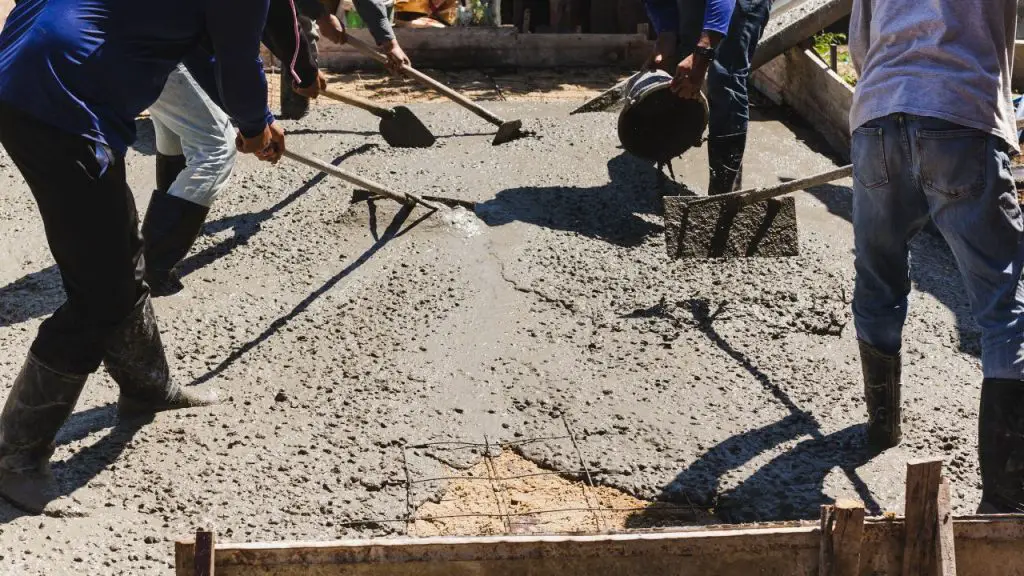Liquid screed is a popular flooring solution that offers numerous benefits, such as fast installation, excellent thermal conductivity, and self-leveling properties. If you’re considering using liquid screed for your project, it’s crucial to calculate the amount of screed, the cost implications and other essential factors. In this article, we’ll provide a detailed overview of liquid screed cost, floor screed prices, drying time, suitability for underfloor heating, and the minimum thickness required. Let’s dive in!

Liquid Screed Cost
Liquid screed cost is a crucial consideration when planning a flooring project. The price can vary based on several factors, including the size of the area to be screeded, the location, and the type of screed used. On average, you can expect to pay between $8 and $15 per square meter cost for liquid screed installation. It’s important to note that this cost includes both labor and materials.
Liquid Floor Screed Prices
Liquid floor screed prices can vary depending on the specific type and brand of screed chosen. Different manufacturers offer screeds with varying properties and performance characteristics, which can influence the cost. Generally, liquid floor screed prices range from $40 to $80 per cubic meter.
Liquid Screed Cost per m3
Liquid screed cost per m3 is an essential metric to consider when estimating the expenses for your flooring project. As mentioned earlier, the average price per cubic meter ranges between $40 and $80. However, it’s important to note that additional costs may apply, such as delivery charges and any additives or reinforcements required for specific applications.
Liquid Screed Cost per m2
To determine the liquid screed cost per m2, you need to consider both the material cost and the labor cost involved in the installation process. As mentioned earlier, the average price per square meter ranges between $8 and $15, which includes all associated expenses.
Liquid Screed Drying Time
One of the significant advantages of liquid screed is its relatively fast drying time compared to traditional screeds. On average, liquid screed dries at a rate of 1mm per day, up to a maximum thickness of 40mm. However, factors such as ambient temperature, humidity, and ventilation can influence the drying time.
Liquid Screed for Underfloor Heating
Liquid screed is an excellent choice for underfloor heating systems due to its exceptional thermal conductivity. The screed acts as a highly efficient heat conductor, ensuring even heat distribution throughout the floor surface. When installing underfloor heating, it’s important to use the appropriate type of liquid screed designed for this purpose. These specialized screeds typically have enhanced flow characteristics, ensuring complete coverage and optimal performance of the heating system.
Liquid Screed Thickness
The thickness of the liquid screed layer is a critical factor to consider to achieve the desired performance and durability. The minimum liquid screed thickness for underfloor heating applications is typically around 50mm. However, for non-heated floors, a minimum thickness of 25mm is often sufficient.
Minimum Liquid Screed Thickness for Underfloor Heating
As mentioned earlier, the minimum liquid screed thickness for underfloor heating applications is generally around 50mm. This thickness ensures optimal heat transfer and guarantees a durable and reliable flooring system. It’s important to follow the manufacturer’s guidelines and consult with an experienced contractor to ensure compliance with building regulations and industry best practices.
FAQs
How much does liquid screed cost?
Liquid screed cost can vary depending on several factors, such as the size of the area, location, and type of screed used. On average, you can expect to pay between $8 and $15 per square meter, including labor and materials.
Are liquid screed prices different for each manufacturer?
Yes, liquid screed prices can vary depending on the manufacturer, as different brands offer screeds with varying properties and performance characteristics.
What is the drying time for liquid screed?
On average, liquid screed dries at a rate of 1mm per day, up to a maximum thickness of 40mm. However, factors such as temperature, humidity, and ventilation can influence the drying time.
Can liquid screed be used with underfloor heating?
Yes, liquid screed is an excellent choice for underfloor heating systems due to its exceptional thermal conductivity. Specialized screeds designed for underfloor heating applications ensure efficient heat distribution throughout the floor surface.
What is the minimum thickness required for liquid screed?
The minimum thickness for liquid screed depends on the application. For underfloor heating systems, a minimum thickness of around 50mm is typically recommended, while non-heated floors may require a minimum thickness of 25mm.
Is it necessary to consult a professional contractor for liquid screed installation?
Yes, consulting a professional contractor is highly recommended for liquid screed installation. They can provide accurate cost estimates, determine the appropriate thickness and type of screed, and ensure compliance with building regulations and industry standards.
Conclusion
Liquid screed is a versatile and efficient flooring solution that offers numerous benefits, including fast installation, excellent thermal conductivity, and self-leveling properties. Understanding the cost factors, drying time, and suitability for underfloor heating is crucial when planning a liquid screed installation.
